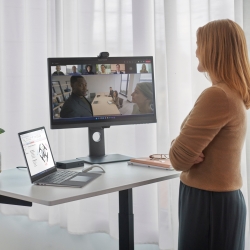To provide the best experiences, we use technologies like cookies to store and/or access device information. Consenting to these technologies will allow us to process data such as browsing behaviour or unique IDs on this site. Not consenting or withdrawing consent, may adversely affect certain features and functions.
The technical storage or access is strictly necessary for the legitimate purpose of enabling the use of a specific service explicitly requested by the subscriber or user, or for the sole purpose of carrying out the transmission of a communication over an electronic communications network.
The technical storage or access is necessary for the legitimate purpose of storing preferences that are not requested by the subscriber or user.
The technical storage or access that is used exclusively for statistical purposes.
The technical storage or access that is used exclusively for anonymous statistical purposes. Without a subpoena, voluntary compliance on the part of your Internet Service Provider, or additional records from a third party, information stored or retrieved for this purpose alone cannot usually be used to identify you.
The technical storage or access is required to create user profiles to send advertising, or to track the user on a website or across several websites for similar marketing purposes.
 Women working from home regularly are less positive about their career prospects than men are, new research suggests. They are also less optimistic about getting recognition for good work and being included in important consultations when compared to men who often work from home, the study found. The research, presented at the British Sociological Association’s online annual conference today [Wednesday, 20 April 2022], comes at a time when employers and staff are deciding how much they will work from home as pandemic restrictions are removed.
Women working from home regularly are less positive about their career prospects than men are, new research suggests. They are also less optimistic about getting recognition for good work and being included in important consultations when compared to men who often work from home, the study found. The research, presented at the British Sociological Association’s online annual conference today [Wednesday, 20 April 2022], comes at a time when employers and staff are deciding how much they will work from home as pandemic restrictions are removed.

































April 25, 2022
What Jacob Rees Mogg really got wrong about working from the office
by Mark Eltringham • Comment, Flexible working, Property